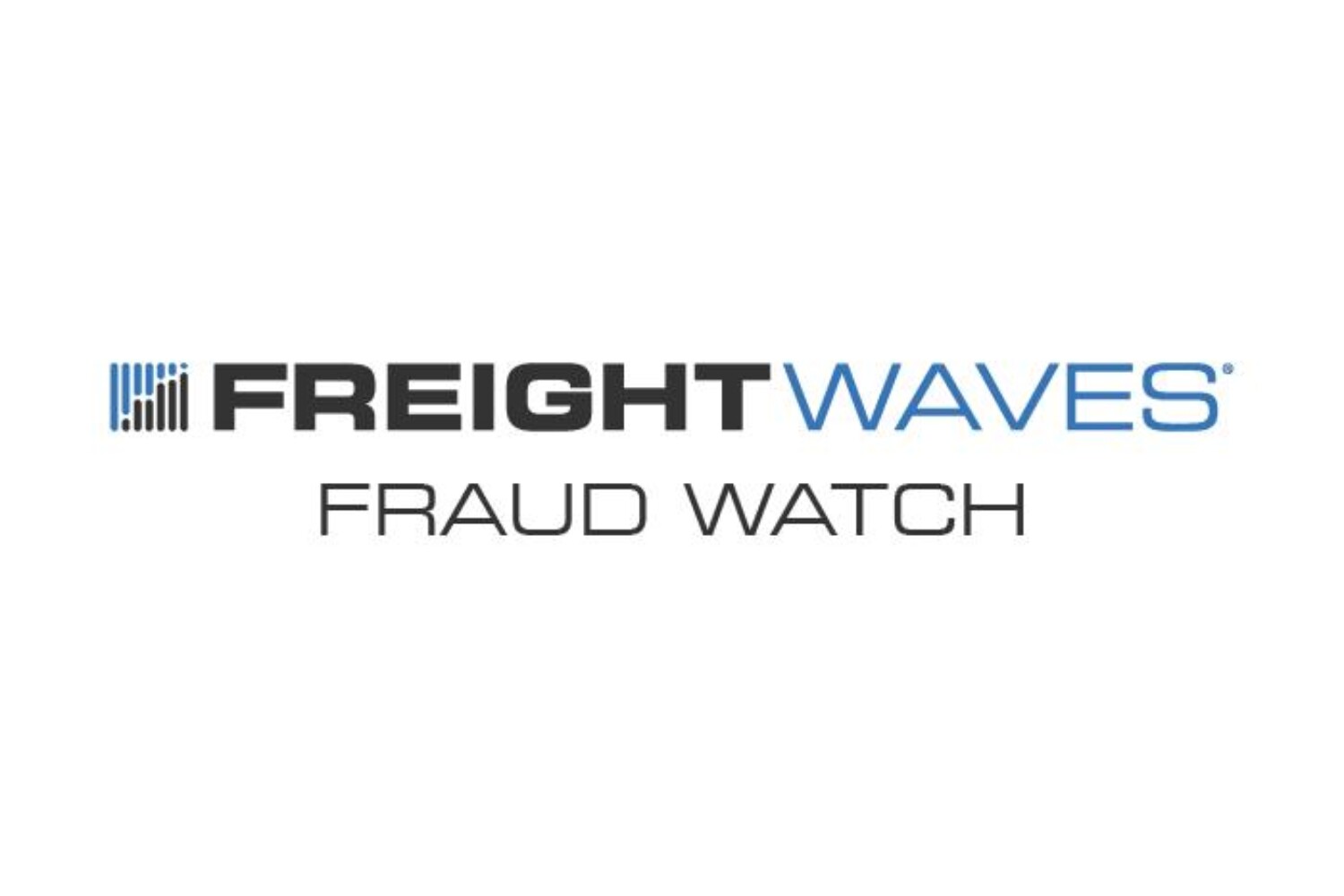How Werner uses AI to stop fraud…
|
|
|
|
|
Descartes MyCarrierPortal delivers next-gen carrier vetting & monitoring technology to stop fraud before it starts. Protect your freight, ensure compliance, and verify with confidence.
|
|
|
(Photo: Jim Allen / FreightWaves)
|
|
|
Does the ‘driver shortage’ myth exacerbate freight fraud?
|
|
|
"The Truth About the Truck Driver ‘Shortage’ and the Fraud It Enables" debunks the trucking industry’s longstanding claim of a severe driver shortage, portraying it as a myth that obscures retention issues and enables fraud. Published on FreightWaves, it argues that the American Trucking Associations (ATA) has recycled this narrative since the 1980s, citing an 80,000-driver gap in 2021 that could double by 2030, despite evidence to the contrary. Desiree Wood of REAL Women in Trucking calls it a false communications strategy, not a reality.
Key data undermines the shortage: Over 400,000 commercial driver’s licenses are issued annually in the U.S., exceeding retirements and exits. If a true shortage existed, wages would rise sharply, but base pay stagnates, benefits are inadequate, and turnover at large fleets surpasses 80% yearly. Amid a 2025 freight recession, carriers like Davis Express and TGS Transportation have shuttered, with idle trucks contradicting capacity desperation. The myth persists for leverage, allowing lobbying for visa expansions (e.g., H-2B, EB-3) rather than job reforms. A 2025 visa pause affected only 1,500 drivers out of 3.5 million, a negligible impact.
The real crisis is job design flaws driving churn: unpaid detention times, mileage-based pay ignoring non-driving hours, erratic schedules disrupting family life and health, and low management respect. Drivers often exit for stable local jobs, creating artificial scarcity. The Bureau of Labor Statistics notes that better conditions—like paid wait times, predictable pay, and home time—could improve retention without visas.
This instability fosters fraud. Desperate carriers lower hiring standards, enabling fake entities with forged registrations, double-brokering scams where loads are reassigned via shell companies, identity theft, and cargo theft. Inadequate training exacerbates risks: Entry-Level Driver Training (ELDT) rules are minimal, with short programs failing to prepare drivers for real-world demands, leading to high accident rates and further turnover. Fraudsters exploit weak vetting, using stolen identities for CDLs.
Solutions proposed include redesigning jobs for retention (e.g., guaranteed minimums, transparent pay), strengthening training with rigorous standards and apprenticeships, and anti-fraud measures like verifiable tax-linked carrier vetting, refusing unverified brokers, and tech for supply chain transparency. Ending the shortage myth would shift focus to accountability, better pay, and sustainable practices, benefiting drivers, carriers, and the economy.
|
|
|
Freight Fraud Video of the Week 🤩
|
|
|
This episode of Freight 360 revisits the dark cloud of ELD and electronic logging device fraud in the trucking industry with guest Justin Martin. The team further explores logistics and transportation issues, including how it impacts the freight broker and the wider supply chain.
|
|
|
FMCSA pushes back on freight fraud: What brokers & carriers need to know
FMCSA’s Ken Riddle speaks with Descartes’ Danielle Spinelli about how the agency is modernizing systems and stepping up enforcement.
|
|
|
How Werner uses AI to stop freight fraud
|
(Photo: Jim Allen / FreightWaves)
|
|
|
Werner Enterprises was recently recognized for its innovative use of artificial intelligence (AI) and complementary technologies to address the persistent issue of cargo theft in the trucking sector. The piece underscores how the company is proactively leveraging these tools to both prevent and combat theft, reflecting a strategic shift toward tech-driven security measures amid rising industry concerns.
Werner emphasized that AI plays a "hefty role" in their anti-theft efforts. This technology is integrated into broader initiatives aimed at safeguarding shipments, which are increasingly vulnerable due to sophisticated criminal tactics like double-brokering scams and identity theft—issues that plague the trucking industry and contribute to significant financial losses. While specific details on AI applications, such as predictive analytics for theft patterns or automated alert systems, are not elaborated, the executive’s comment positions AI as a cornerstone of Werner’s defense strategy.
Complementing AI, Werner collaborates with a third-party carrier to deploy cameras strategically placed along major transportation corridors. These cameras facilitate real-time tracking of trucks, enabling enhanced monitoring and rapid response to suspicious activities. This partnership exemplifies a multi-layered approach, combining Werner’s operational scale with external expertise to create a more resilient supply chain.
The narrative flows from introducing Werner’s tech adoption to explaining its practical implementation, emphasizing prevention over reaction. Although the article does not provide quantitative data on cargo theft—such as annual incidence rates or economic impacts—it aligns with wider industry discussions where theft is linked to operational instabilities like high driver turnover and inadequate vetting processes. By investing in AI and surveillance, Werner aims to mitigate these risks, potentially reducing turnover by improving job safety and reliability for drivers.
This focus on technology also ties into Werner’s broader innovation efforts, as seen in related industry reports where carriers like Werner are advancing tools like transportation management systems and conversational AI for efficiency. However, the article centers on cargo theft specifically, suggesting that AI’s role could extend to predictive modeling, anomaly detection in load assignments, and integration with supply chain transparency platforms to deter fraud.
In the context of a freight recession and ongoing debates about trucking myths like driver shortages enabling fraud, Werner’s strategy represents a forward-thinking response. It shifts emphasis from mere capacity expansion to quality improvements in security and retention. Future plans are not detailed, but the implication is clear: sustained tech investment could set benchmarks for the sector, fostering accountability and sustainability.
Werner is a leader in using AI to tackle cargo theft, blending executive insights with practical examples to highlight technology’s transformative potential. This not only protects assets but also bolsters the industry’s resilience against evolving threats, ultimately benefiting stakeholders from drivers to shippers in a challenging economic landscape.
|
|
|
|
![]()

![]()